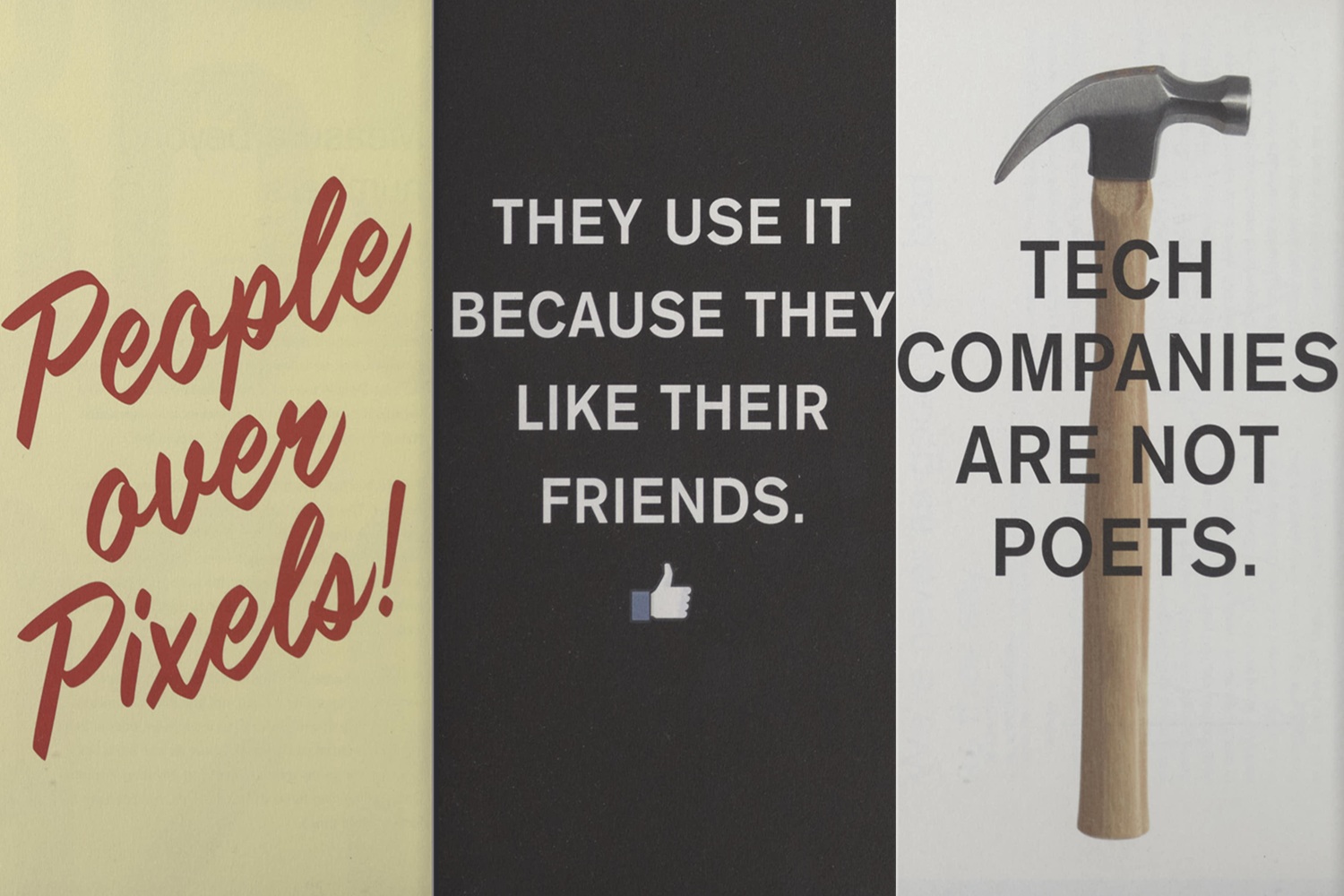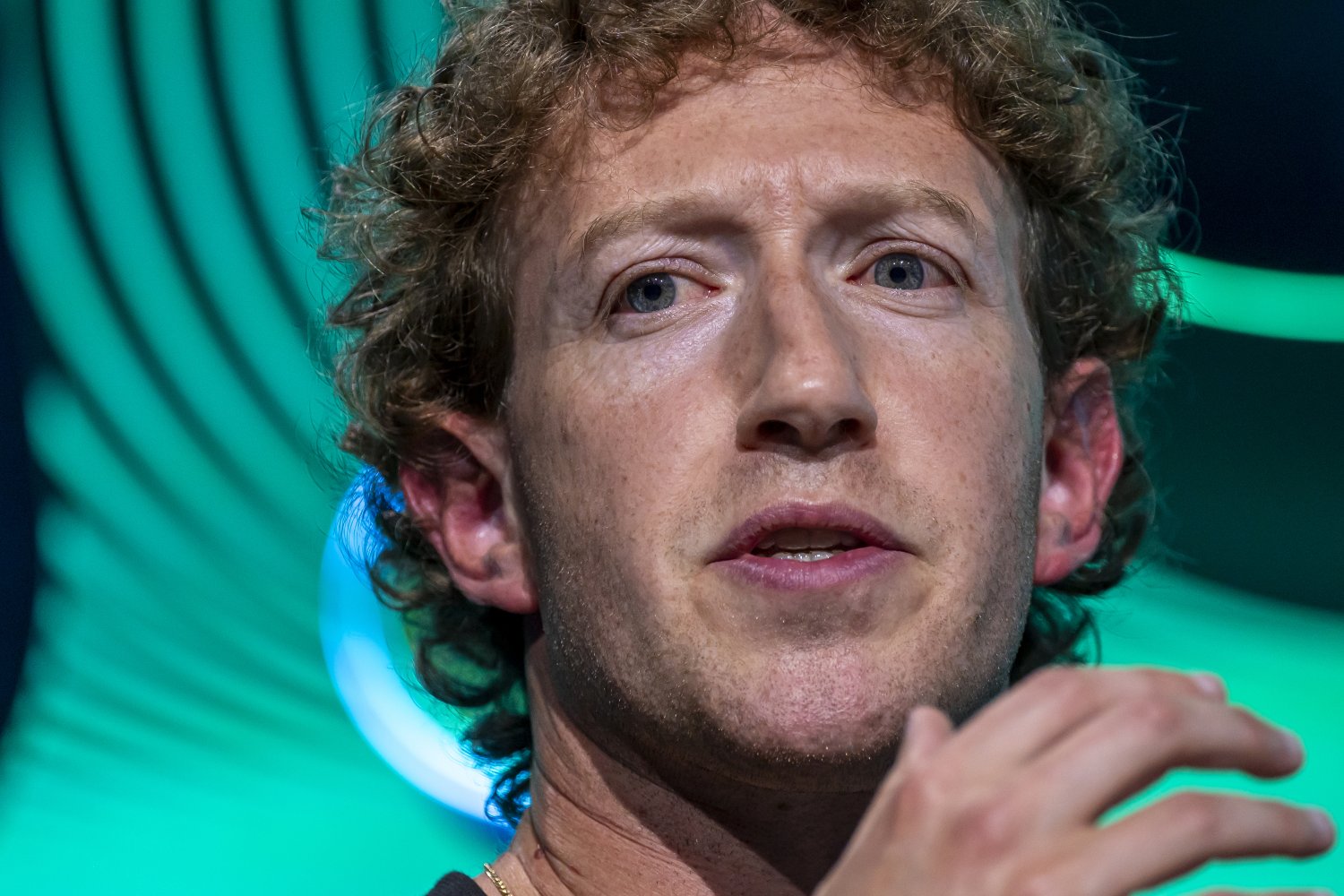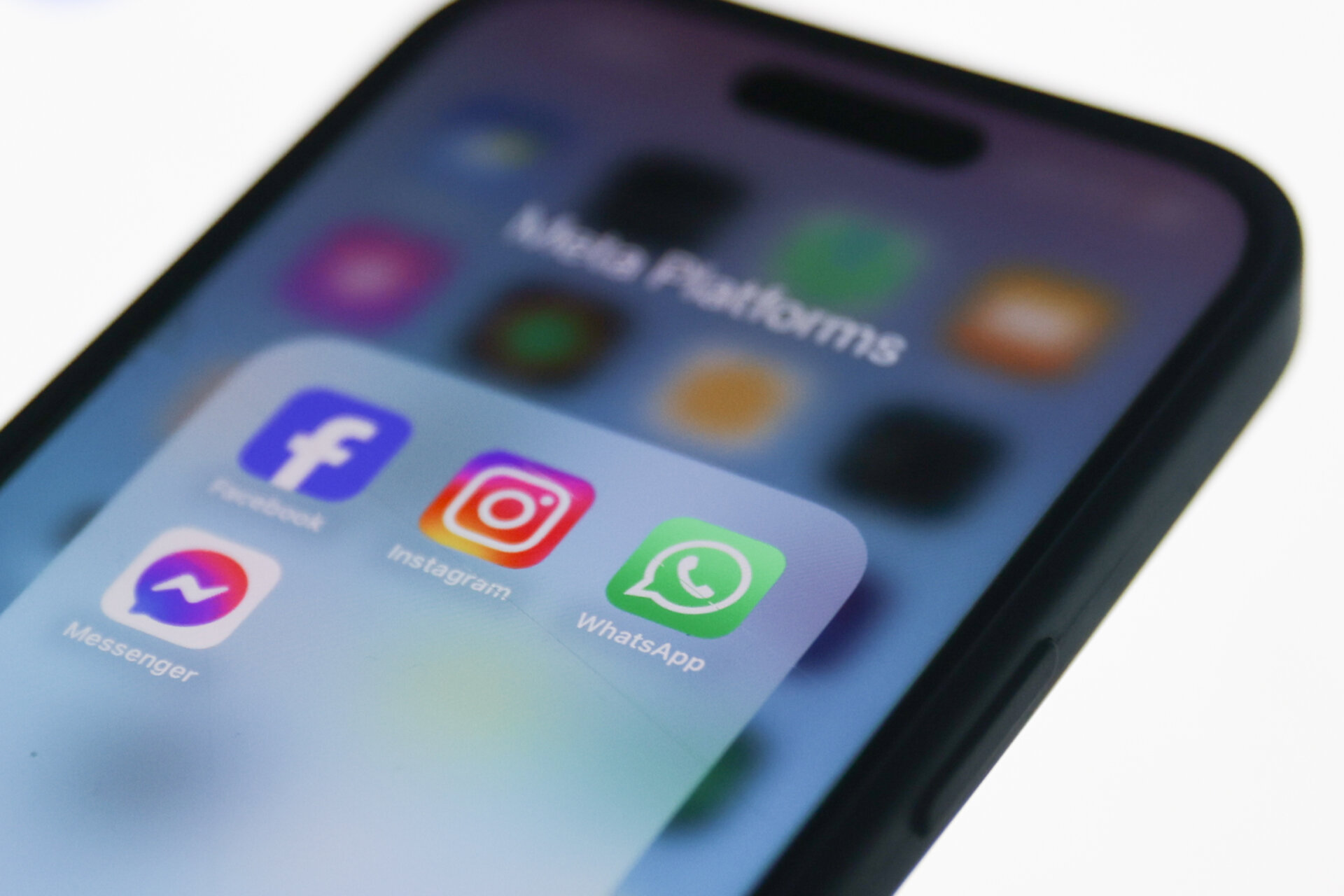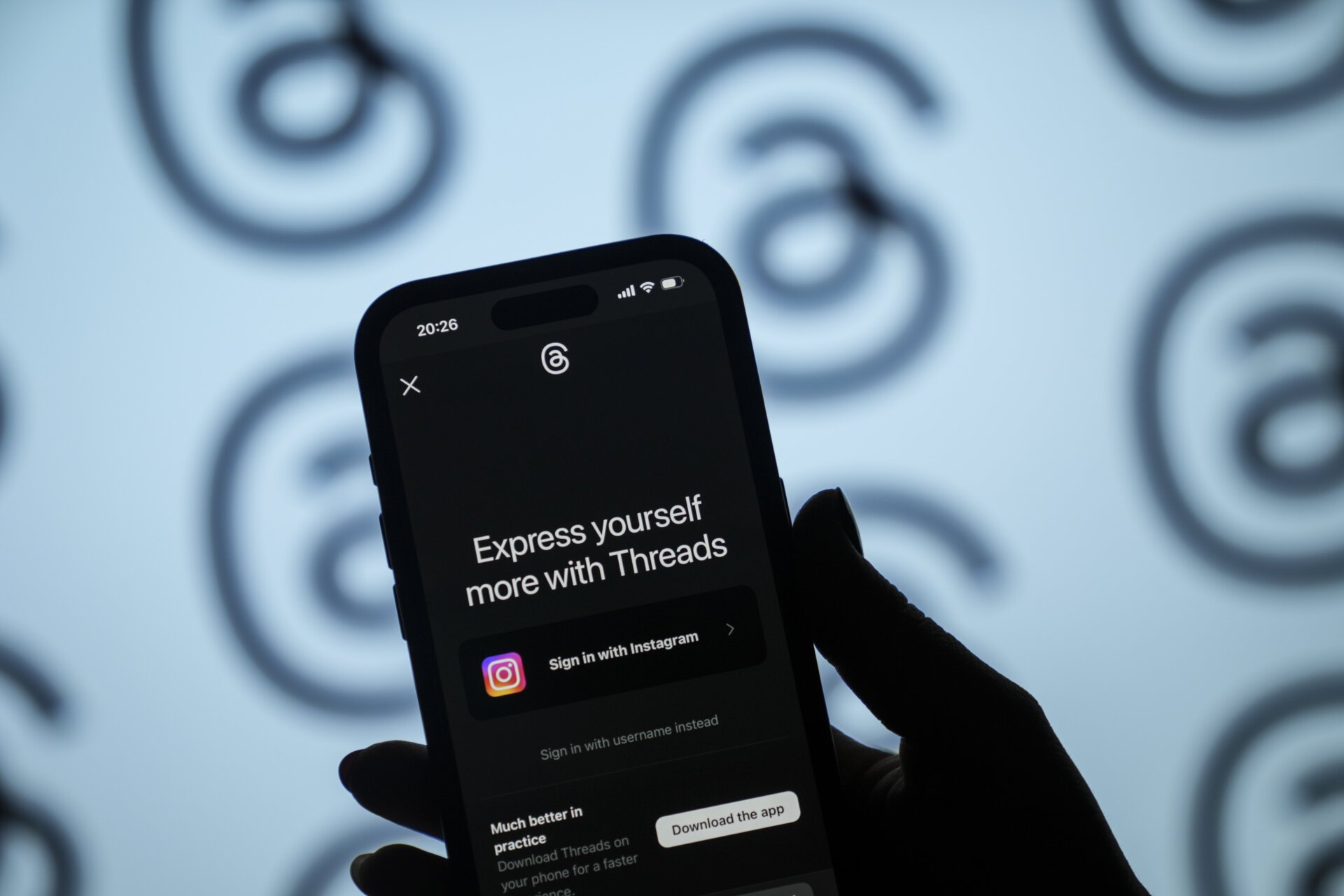In 2012, Facebook printed a Little Red Book. The book’s slight 148 pages were a mishmash of pop art, corporate emails, and aphorisms. It was meant to distill the ethos of a company at the height of its powers. Someone has finally used a high-quality scanner and uploaded a high-resolution copy of the book on the internet for all to read. It’s a fascinating, and frustrating, piece of history.
The book was the product of Ben Barry, a designer working at Facebook who ran an internal print ship called the Facebook Analog Research Laboratory. Bits of the book have appeared online before, but typically in an altered or low-resolution form. The new upload of the book comes thanks to entrepreneur Matthew A Parkhurst, who posted it on his personal blog.
To hear Parkhurst tell it, the Little Red Book was more than an employee handbook. “It was a declaration of identity, solving the problem of scaling culture during explosive growth. It reminded employees: This is who we are. This is why we exist,” he said on his blog. He tracked down a copy of the book on eBay and used a high-quality DT-BC100 scanner to capture its pages.
The Little Red Book is an impressionistic view of a tech company that, in 2012, had already changed the world. It invokes Mao’s Little Red Book while pressing together the aesthetics of Marshall McLuhan and an IKEA catalog. It reads like the Tumblr of a poster high on their own supply, full of power and smug while destroying the universe.
This is two years after The Social Network. The Arab Spring, which enthusiasts heralded as proof that social media could save the world, had been brutally suppressed. Zuckerberg’s public persona had entered its villain era. The Little Red Book reads like the manifesto of an egomaniac.
Facebook, it explains, was not started as a company. “It was built to accomplish a social mission—to make the world more open and connected,” it says. “Changing how people communicate will always change the world. Changing how ideas spread changes how society functions, changes how people speak, changes how people live, changes how people tell stories, changes how people fall in love, changes who people consider friends, changes who people consider strangers, changes what being alone means.”
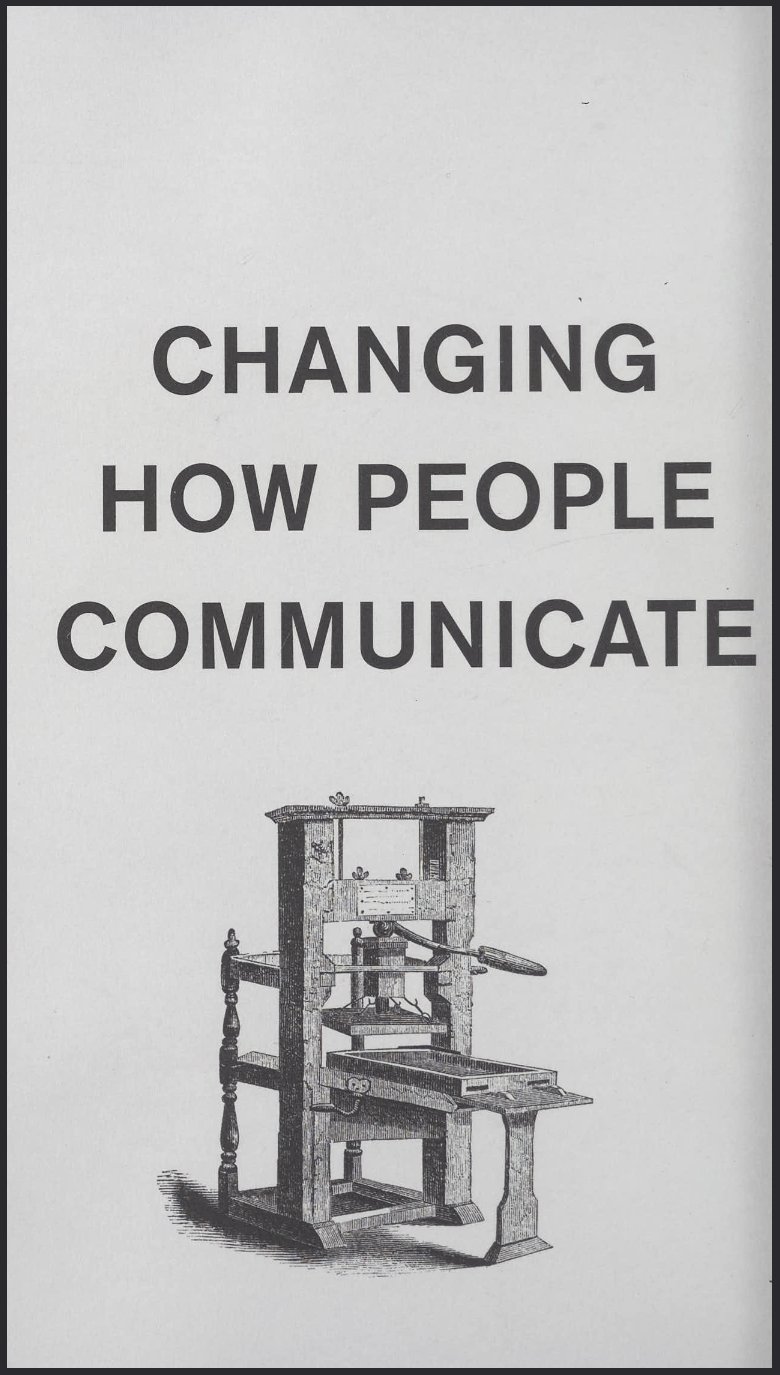
Facebook did, indeed, do all those things. It opened up vast new vistas of human loneliness. It proved that digital life could be very real and allowed us new methods to hurt each other.
Early on, the Little Red Book places itself in the history of human art and communication. It shows the Lascaux caves, the Tombs of the Nobles, the Sistine Chapel, the fall of the Berlin wall, and then a blank Facebook prompt. The implication is that Facebook now controls the wall we all scribble our graffiti on.
Next comes Zuckerberg’s Law. “It sounds cool, doesn’t? Like some sort of vigilante justice for people who take too many pretzels from the micro kitsch. Yeah, it’s not that. It’s about sharing stuff on the internet,” the book says. “Zuckerberg’s Law: The amount each person shares doubles each year.”
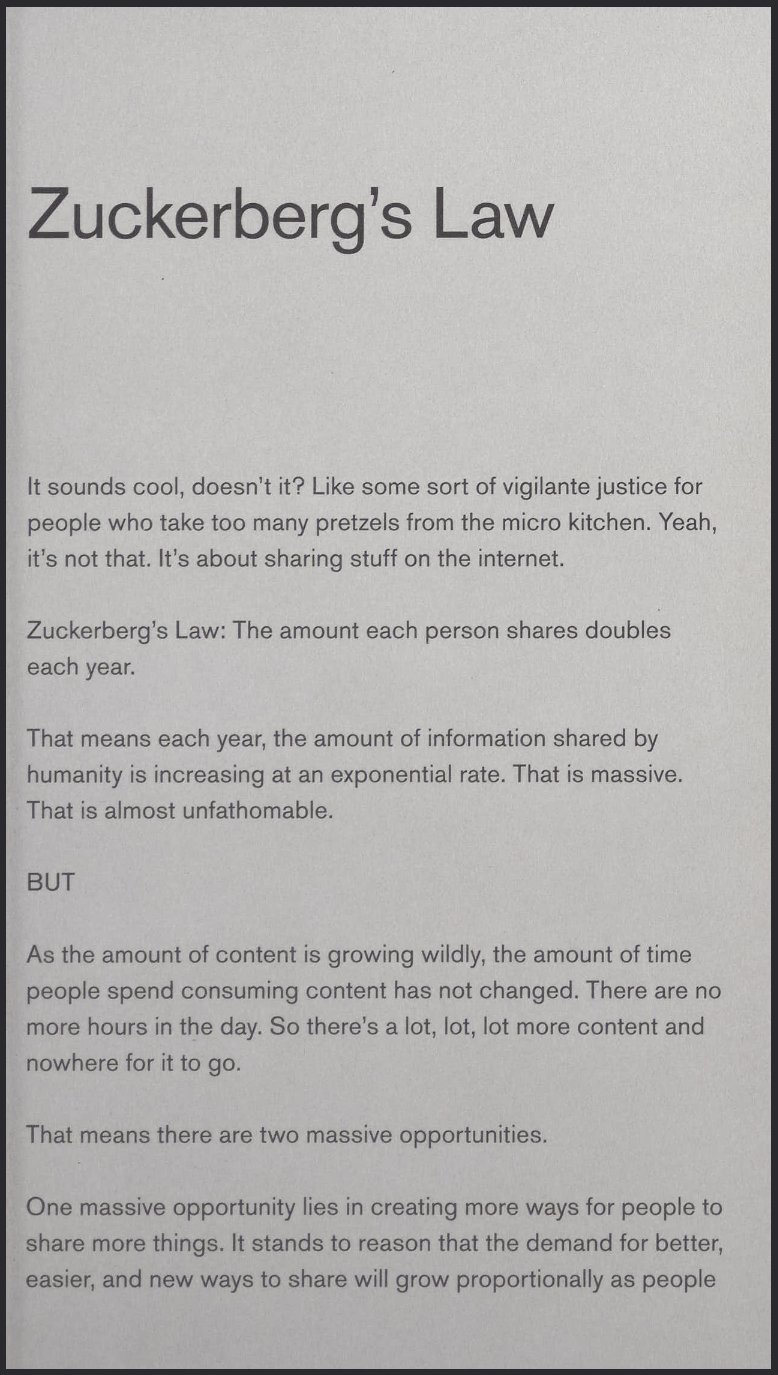
The book then drifts into declarations about the importance of people over data. “Build products around people, not data,” it implores. And much later: “Remember, people don’t use Facebook because they like us. They use it because they like their friends.”
This is, of course, not what happened to Facebook. Anyone who still uses the site knows that it’s a fetid swamp of artificially generated slop, the deepest thoughts of your most racist relatives, and advertisements for pages that somehow merge the two.
Facebook was always about extracting as much data from humans as possible in order to sell it to corporations. To Facebook, humans are shale rock. It’s up to the company to blast us down and render us into the only thing we have that it values: data. Valuing humans over data is the beautiful dream of a company that knows, at its core, what it’s doing is wrong. It’s like Google saying “Don’t be evil.” You only come up with an ethos like that when you know you’re about to do the opposite and you need to lie to yourself.
The rest is a blur of corporate emails, aphorisms, and high-minded bullshit. There are pictures of Facebook employees, street shots imitating better zines, and a brief history of human communication rendered into text messages. The “move fast and break stuff” mentality is emphasized over and over.
So is the lie that Facebook is making the world a better place. “Everything we build should facilitate human connection,” it says.
And, from time to time, startling admissions. “Tech companies are not poets,” it says over a picture of a hammer. It’s one of the only honest and clear-headed pages of the book.
